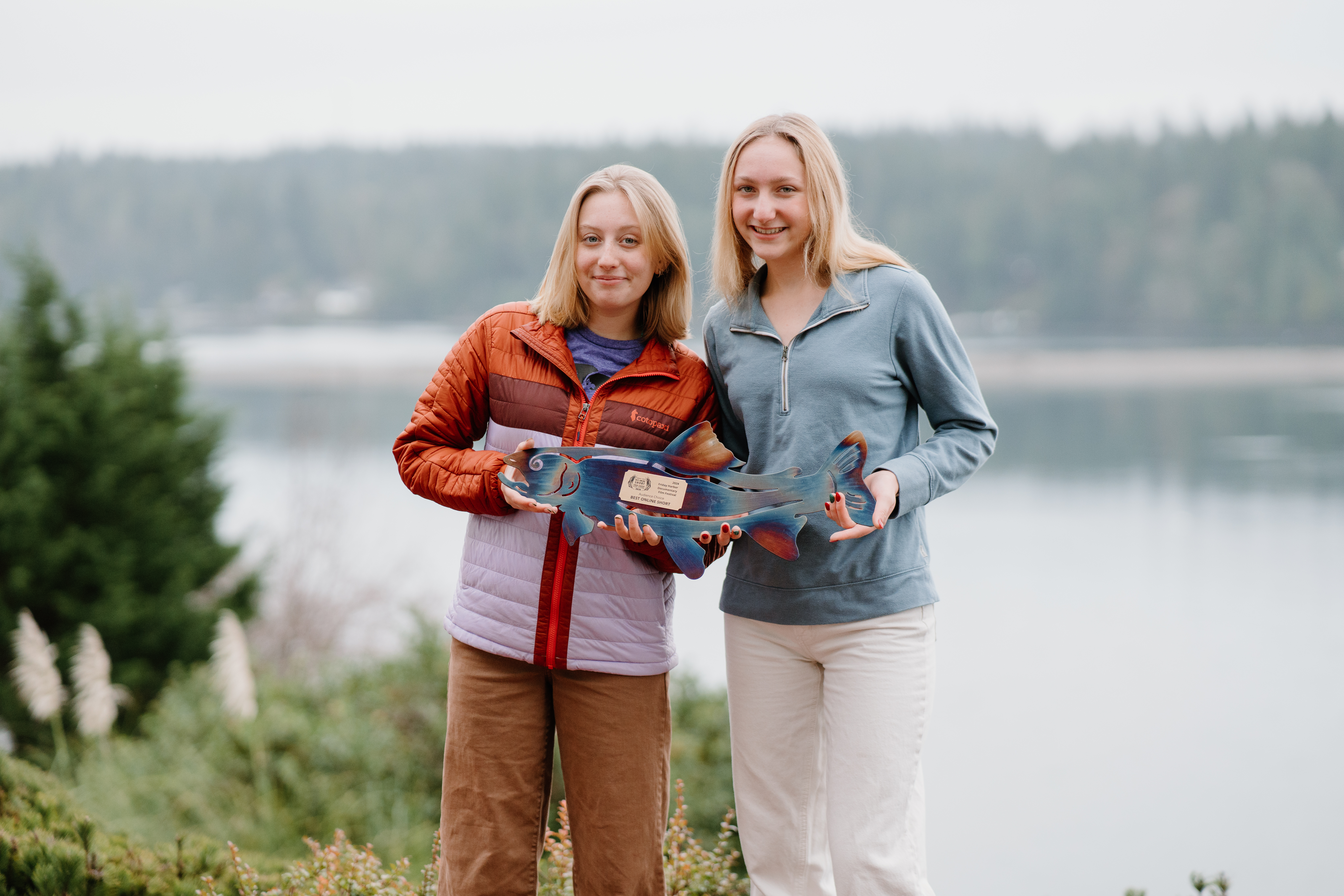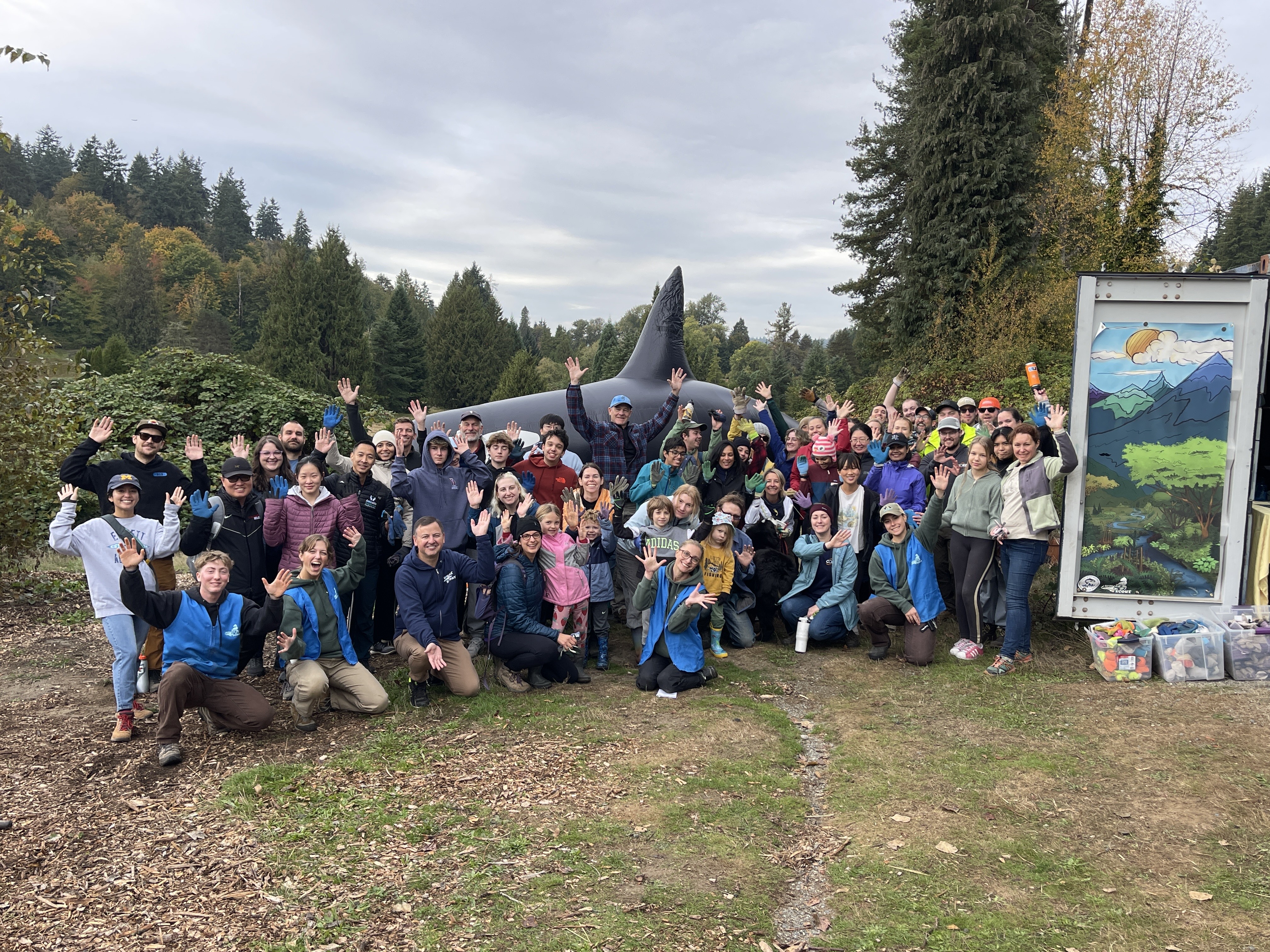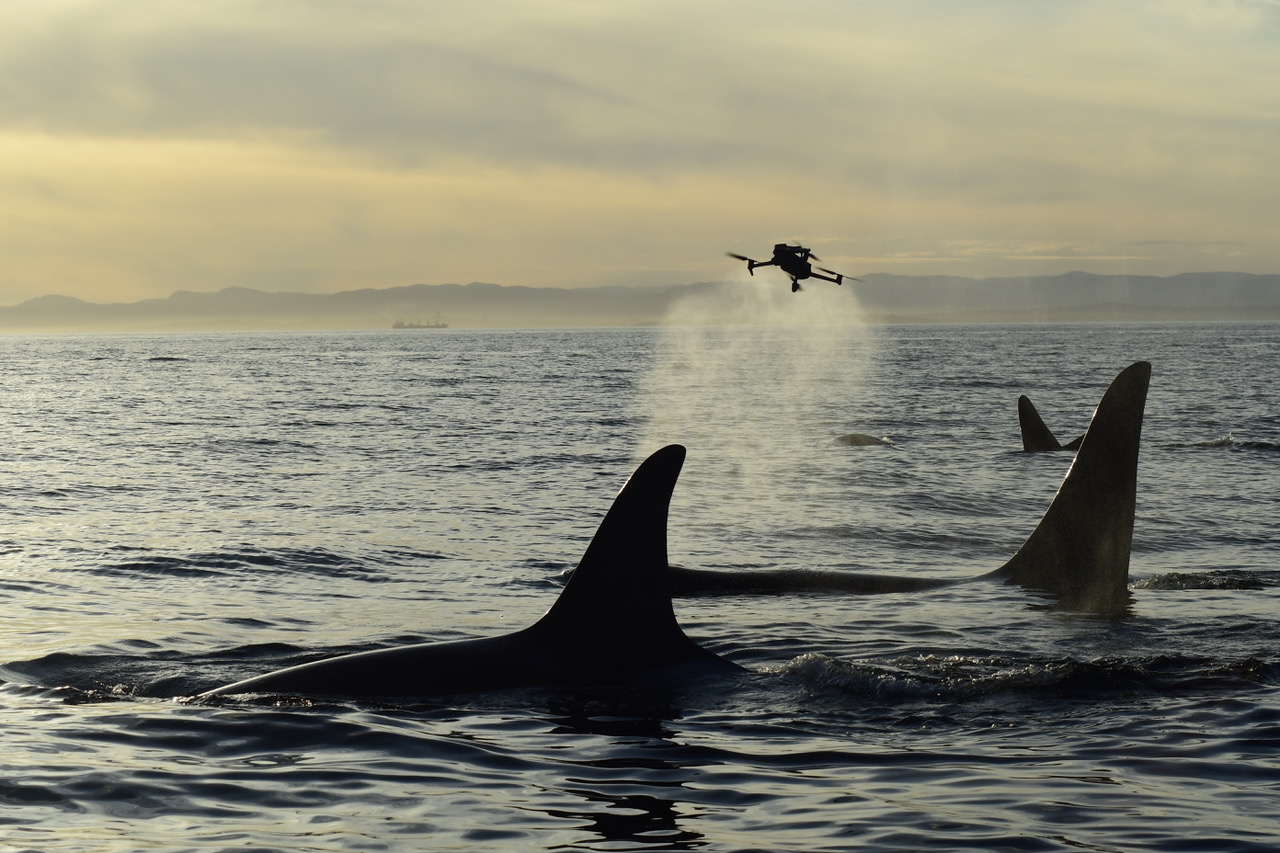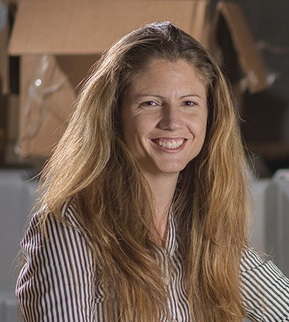2025-2026 Speaker Series
On the first Tuesdy of the month from October through June, American Cetacean Society Puget Sound members gather to talk, listen to a great speaker, and interact. You're welcome to join us whether you're an orcaholic, partial to grays, prefer stinky minkes, are really a pinniped person, or are just curious and interested in some free entertainment with an educational component. This is where we post information about speakers for the current season.
RSVP to reserve a space at our next talk now!
Click on any of the +Abstract links for a summary and a brief bio about the talk.
Many abstracts also contain additional related resources.
6 January 2026 - Emma and Annie Stafki
Echos of the Sound movie & Every Day for Orcas campaign Abstract
Sisters Emma (21) and Annie (17) Stafki will share their journey of Southern Resident Orca advocacy through their award-winning documentary Echos of the Sound, which tells the untold story of Hugo, the orca captured in 1968 in Vaughn Bay and sent to Miami Seaquarium. They will also discuss their Every Day for Orcas Instagram campaign (@two_girls_take_on_the_world), in which they are cold-plunging every day for a year to raise awareness for the Southern Resident Orcas. The evening includes a film screening and a Q&A session focused on their documentary and advocacy work, offering insights into their unique approach as young advocates.
Emma and Annie Stafki are a dynamic sister duo from Washington State, known for their work as filmmakers, photographers, and environmental advocates. Together they co-founded Two Girls Take on the World and created the award-winning documentary Echos of the Sound, blending their passion for storytelling with a commitment to protecting marine life.

2 December 2025 - Whitney Neugebauer and Rachael Kutz
From Fairways to Fish Habitat: The Story of How a Former Golf Course Can Help Save Endangered Orcas Abstract
Once a private golf course, the former Wayne property features nearly a mile of shoreline along the Sammamish River and Waynita Creek. Now Bothell’s largest public park, an enormous opportunity now exists to restore salmon habitat, benefitting endangered Southern Resident killer whales. Whale Scout has led the community in restoration efforts for six years and counting utilizing a creative, grassroots approach that engages students and diverse audiences. Today, the future of the river is about to be determined as the community gives feedback during a master plan for the park.
Whale Scout Director, Whitney Neugebauer, completed degrees in Geology and Anthropology from Eckerd College prior to receiving her master’s degree in Marine and Environmental Affairs from the University of Washington. She went on to found Whale Scout in 2013. She lives in Bothell, Washington where she enjoys camping with her family and exploring all that the PNW has to offer.
Whale Scout Field Biologist and Education Manager, Rachael Kutz, realized her true passion was to care for wildlife any way she could through means of conservation and habitat restoration. Ever since a child, she would visit Seattle in hopes of one day living here. Now that she's accomplished that dream, she wants to do everything in her power to protect the wildlife here, both on land and in the sea. When not out with Whale Scout, she’s volunteering at the Seattle Aquarium, baking, painting, snowboarding, or caring for nearly 60 house plants!

4 November 2025 - Joe Gaydos
Health Assessments and Electronic Medical Records: Tools for Saving Southern Resident Killer Whales Abstract
Lack of available salmon, increased vessel noise and disturbance, and high levels of persistent organic pollutants hinder Southern resident killer whale recovery. In addition to addressing these threats, the population is small enough that understanding and addressing health concerns also is important for recovery. Numerous agencies and organizations have been developing tools for remotely assessing individual and population health in killer whales and are collaborating on developing an electronic health database and electronic medical records for tracking information and for assisting managers with adaptive management and action where needed.
Joe Gaydos is a respected wildlife veterinarian and the Science Director for the SeaDoc Society, a science-based marine conservation program of the UC Davis Karen C. Drayer Wildlife Health Center. For the last two decades, Joe has been working on wildlife and ecosystem conservation in the Pacific Northwest. He’s an expert on diseases that impact both human and wild animal health and works on species like seabirds, harbor seals, river otters, porpoise, and killer whales.

Photo by Maya Sears -collected under NMFS Permit #21348
7 October 2025 - Dr. Kim Goetz
Every Whale Counts! Scientific approaches for estimating abundance and survival of beluga whales in Cook Inlet, Alaska Abstract
The Cook Inlet beluga whale (Delphinapterus leucas) is a critically endangered, genetically distinct population found only in Alaska’s Cook Inlet. Over the past several decades, their numbers have declined dramatically due to subsistence hunting, habitat degradation, and human disturbance, falling to approximately 300 individuals by the early 2000s. This decline prompted their listing as endangered under the Endangered Species Act in 2008. Recent aerial surveys indicate a potential stabilization, with current estimates near 330 individuals; however, the population remains highly vulnerable. To better understand this population, researchers at the Marine Mammal Laboratory employ a diverse array of tools—including aerial surveys, drone surveys, acoustic monitoring, and high-resolution satellite imagery—to assess distribution, abundance, and survival. This presentation will provide an overview of these research methods and highlight the insights they offer toward a comprehensive understanding of Cook Inlet beluga whales.
Kim Goetz currently works at NOAA, Alaska Fisheries Science Center, Marine Mammal Laboratory in Seattle Washington where she focuses on the ecology, movement, distribution, and abundance of cetaceans. Kim produced the most recent abundance estimate for Cook Inlet belugas and is the pilot in command for beluga unmanned surveys. Kim is also currently co-leading a new initiative - Geospatial Artificial Intelligence for Animals (GAIA) - with the aim of creating an AI pipeline for detecting marine species in very high-resolution satellite imagery. Prior to NOAA, Kim completed her PhD at University of Santa Cruz where she studied the movement and foraging behavior of Weddell seals in the western Ross Sea Antarctica. Her research interests include Spatial ecology, marine mammal & seabird conservation, movement & behavior of animals, and science communication.


